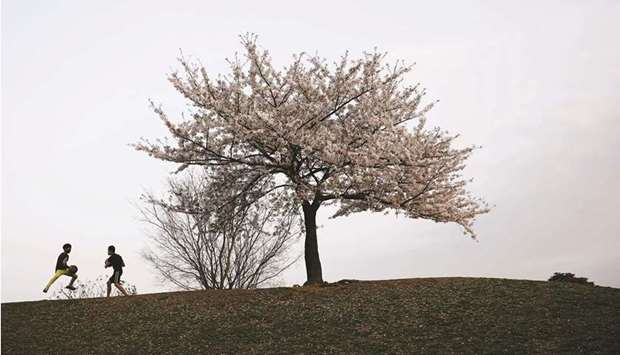Japan’s cherry trees are reaching full bloom in record time this year, the national weather agency has said, linking the early sakura season to the world’s warming climate.
In the ancient capital of Kyoto, cherry blossoms hit their peak on March 26 – 10 days sooner than average and the earliest since the government started taking records in 1953. “Our studies have shown that the start of cherry blossom season is closely linked with the average temperature in February and March,” Shunji Ambe, a Japan Meteorological Agency official, told AFP.
“Our observations of plant life show that spring phenomena (such as cherry and plum blossoms) tend to take place earlier, while autumn phenomena are delayed,” he said in an e-mail yesterday. “It is our belief that these phenomena reflect a rising temperature trend.”
On average, Tokyo’s cherry trees reach full bloom on April 2. This year the capital’s cherry blossom peaked on March 22, a day slower than the earliest logged in 2002. Of the 58 officially designated “observation cherry trees” across Japan, 24 began to flower at the earliest date on record, the agency said. 14 also reached full bloom in record time.
Most of these designated trees are of the best-known and beloved yoshino variety – known for its white-pink flowers that bloom for about two weeks then fall in showers of small confetti-like petals. Scholars who have studied ancient Japanese poems and historic records say cherry blossoms of other wild varieties have also appeared earlier over centuries. Japan’s sakura or cherry blossom season is feverishly anticipated by locals and visitors alike, although this year foreign tourists have been kept away by virus border restrictions.
It is traditionally celebrated with hanami, or viewing parties, with picnics – and sometimes festivities – organised beneath the trees. But this year gatherings have been discouraged to reduce the spread of coronavirus cases.

Boys play next to a blooming cherry tree at a park in Tokyo, Japan.
